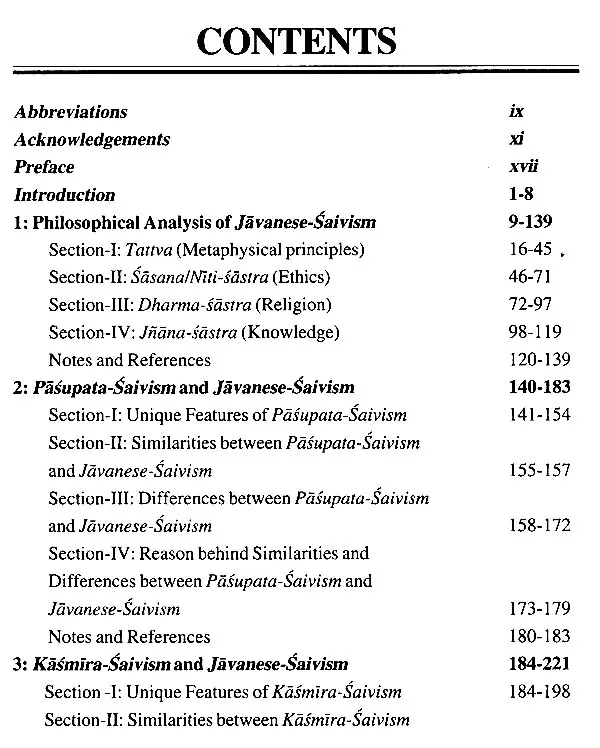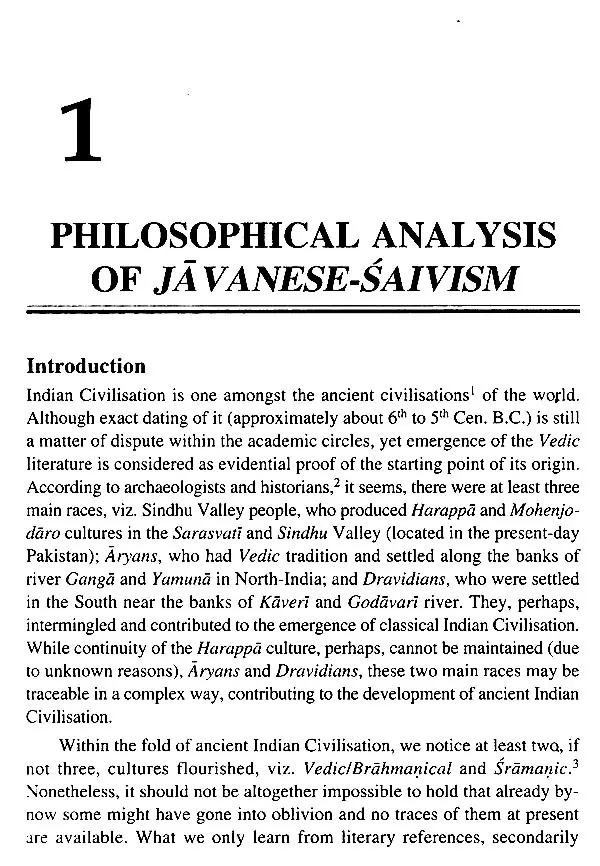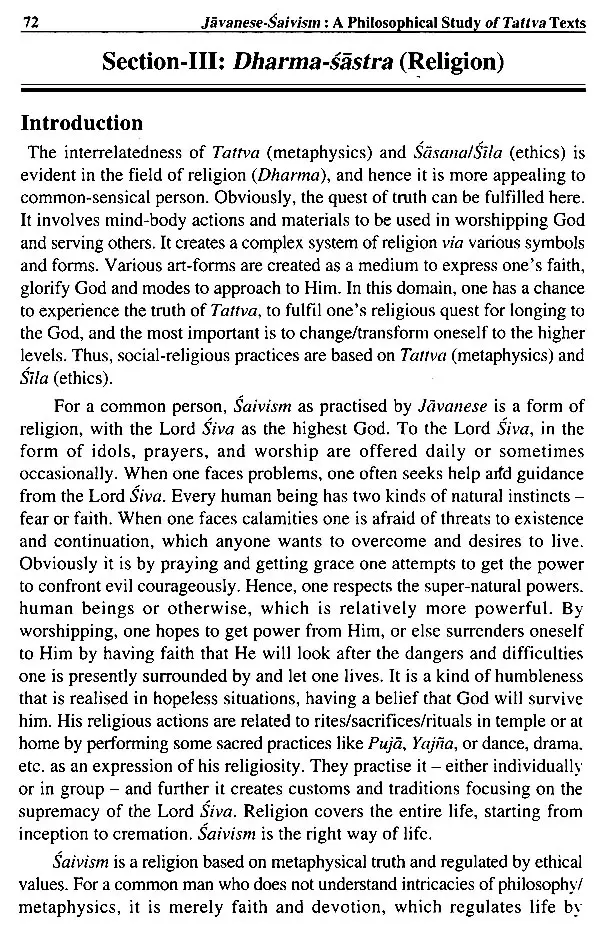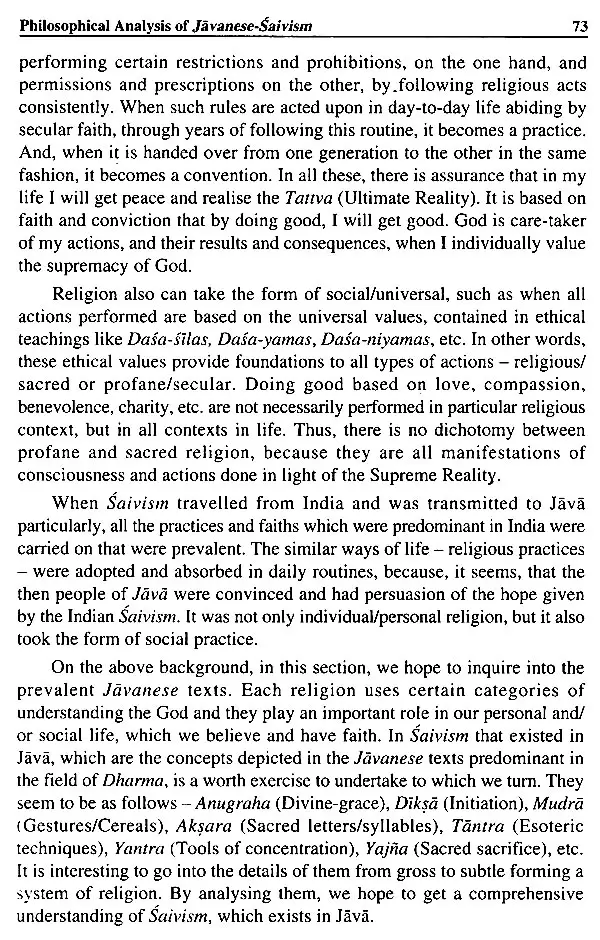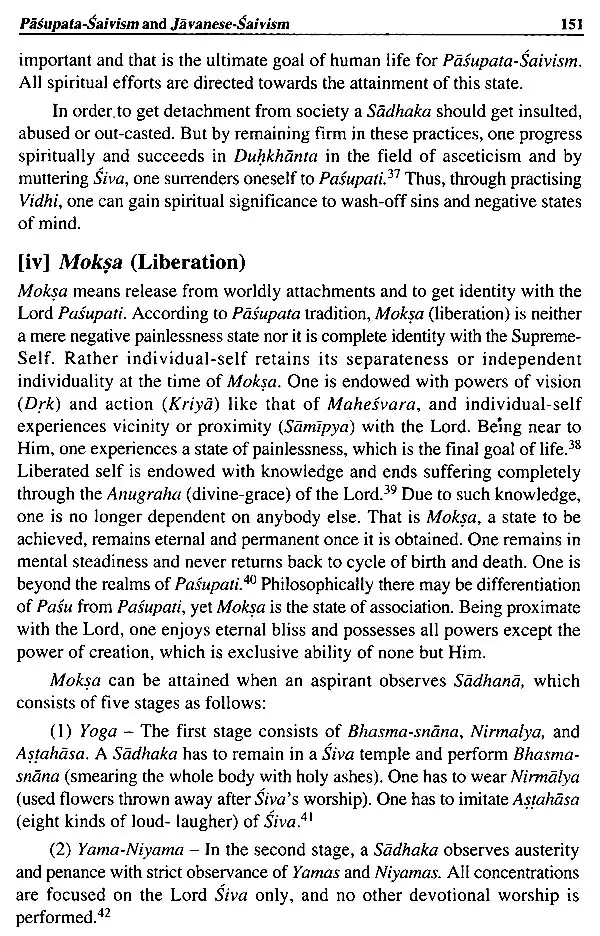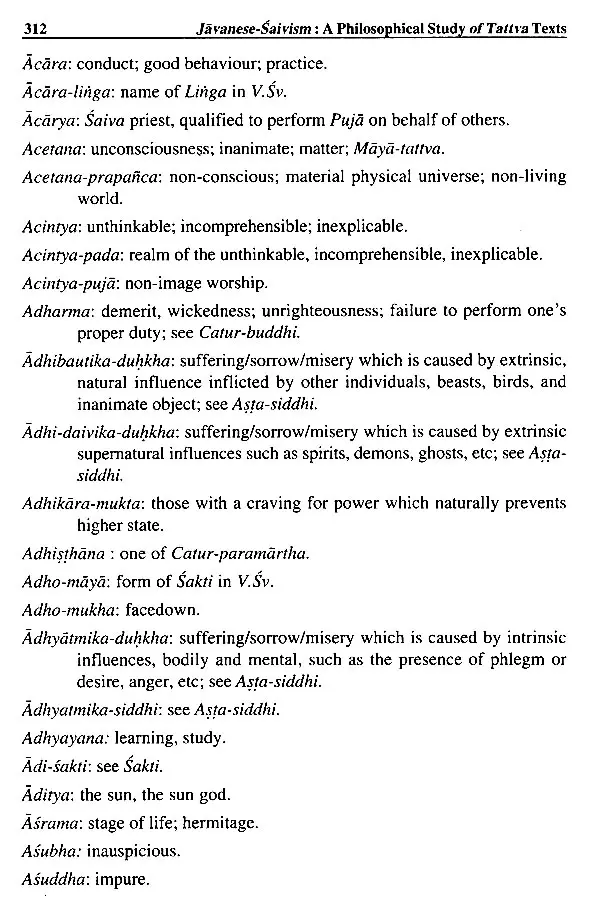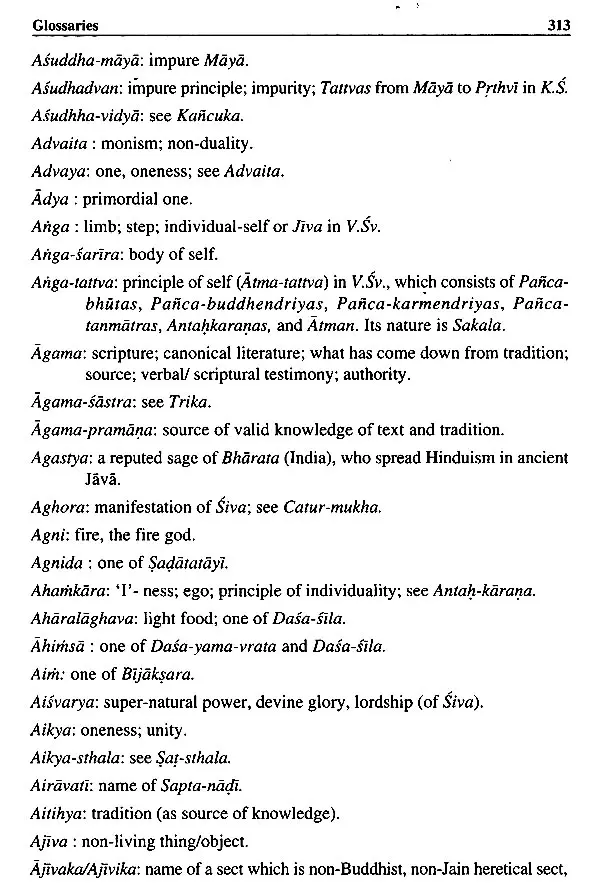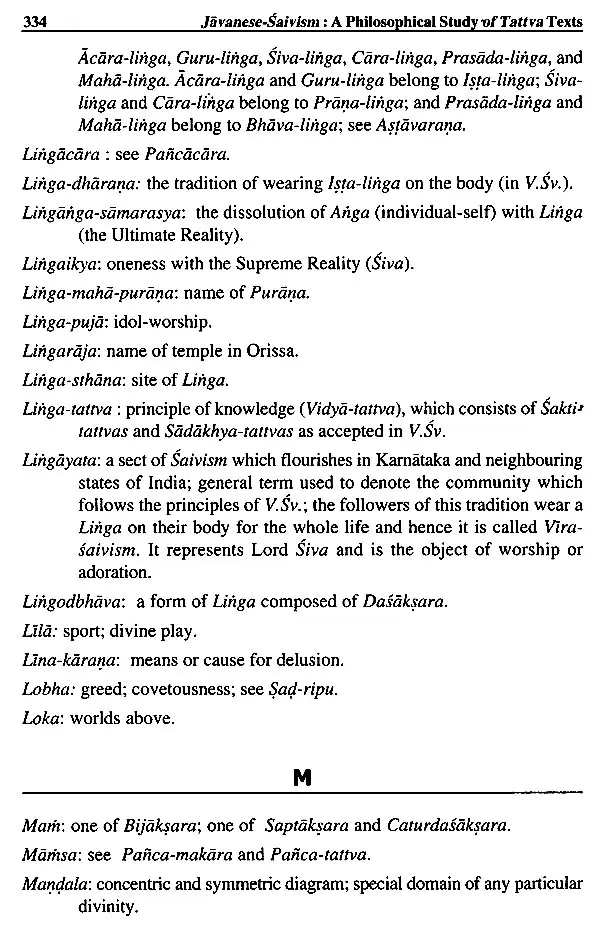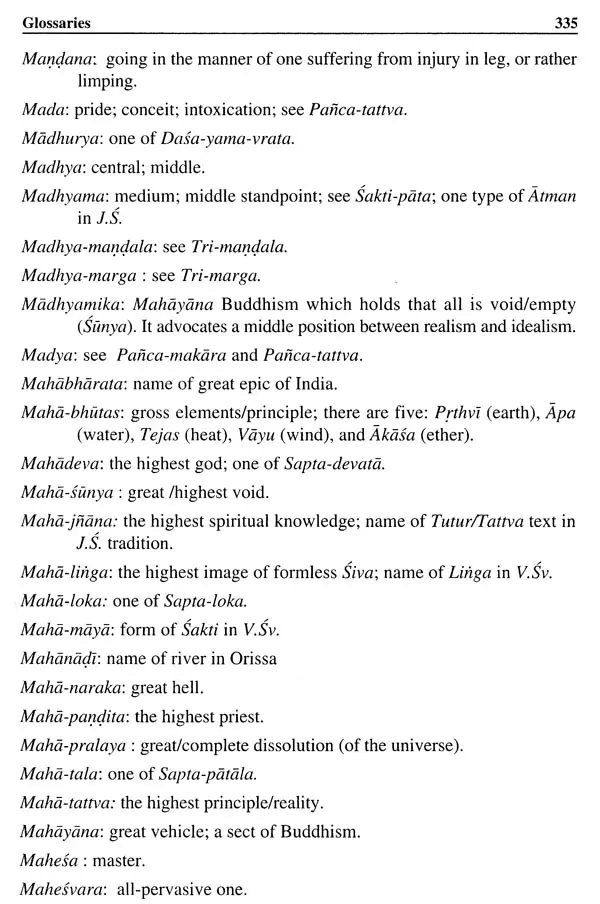
Javanese-Saivism : A Philosophical Study of Tattva Texts
Book Specification
| Item Code: | UAN652 |
| Author: | Ida Bagus Putu Suamba |
| Publisher: | B.R. Publishing Corporation |
| Language: | English |
| Edition: | 2016 |
| ISBN: | 9789350502747 |
| Pages: | 424 |
| Cover: | HARDCOVER |
| Other Details | 9.50 X 6.50 inch |
| Weight | 790 gm |
Book Description
This book attempts to present, perhaps for the first time, a fairly comprehensive analysis of the philosophical principles of Javanese Saivism as contain in Sanskrit-Old Javanese TuturfTatra texts. It seeks to bring out major aspects of philosophical enquiry, viz. metaphysics, ethics, religion, and epistemology, and tries to see their interrelation. To state that Javanese form of Saivism is a unique and independent sect of Saivism, it brings out its similarities and differences with four known forms of Saivism, viz. Pasupata-Saivism, Kasmira- Saivism, Saiva-Siddhanta, and Vira-Saivism. Having such similarities and differences are not sufficient to state it as a unique and independent form of Saivism, which flourishes out side India, unless and until it can present the reasons of such things exist. Through modern modes of understanding, it brings out its contemporary relevance and significance to the present days.
IDA BAGUS PUTU SUAMBA (b. 1963) in Peninjoan. Bangli, Bali, Indonesia received his Drs. in 1987 in English teaching from the University of Udayana, Bali; M.A. in 2001 from the University of Delhi; and Ph.D. in 2011 from the University of Pune, Maharashtra, India; both are in Philosophy. He teaches English in the State Polytechnic of Bali and Indian Philosophy in the University of Hindu Indonesia in Bali. Apart from participating national and international seminars/conferences and contributors to them, he has eighteen authored books in Indonesian. number of research articles published in renowned journals to his credit.
Ancient Indian past is glorious in more than one ways, is a fact not of pride but it is our duty and responsibility to preserve and contribute our might to such a treasure by way of inquiry. It is a fund of knowledge worth to inquire and acquire, adopt and apply in different times, contexts and places. In the ancient past all the traditions-systematized or pre-systematized, philosophical or otherwise - were living together amicably, though not necessarily homogeneously. Although there were differences and clashes, they tolerated, adjusted and/or assimilated by various kinds of connections within the framework of Indian Civilization. Historically there were no boundaries. territorial or temporal- but spreading of thoughts and practices, since time unknown, was emphasised. Importance was given to impact and influence a particular idea or thought created, instead of individual-centric events of chronologies and annals. It was an atmosphere, perhaps, of give-and-take. and of preservation of traditions of thoughts and practices; rather than destruction of kingdoms and abolition of traditions/races/groups/individuals. Impact and influence of thoughts and practices upon one-another-not necessarily from the same tradition, but even that of completely opposite or heterogeneous tradition/s-was absolutely normal.
1. Need of the Study and the Perspective Behind
Indian philosophical traditions in general are a matter of pride and timeless rich treasure of intellectual and spiritual achievements of mankind, and Saivism in particular is not an exception to it. Saivism, when it travelled and transmitted in the neighbouring regions, some of the philosophical ideas and thoughts were well-absorbed and/or preserved, in the Indianized form, especially in the lands like Jävä (in the present-day Indonesia) roughly speaking from 4th Cen. A.D. or even earlier. Although original seeds of ideas were from India, they being transmitted not at-a-time once-for-all, but at different times and in various ways, took diverse forms. Naturally now when we attempt to trace them back, we find that there are layers-on-layers and expressional variations regionally as well as historically depicted in the textual or otherwise evidences on the one hand and cultural practices traditionally followed by generations together, on the other.With reference to Saivism, which transmitted since ancient times, was adapted and modified by Javanese or Indonesian people, not exactly in the same form but in different ways; and to re-discover their original roots back again is the most challenging task philosophically; as it is existing in the depth and hidden form in the Old Javanese texts. Until Javanese textual tradition of Saivism has not been studied from a philosophical perspective, it is not possible to argue and claim anything appropriately. This does not mean that no attempts have been made in this direction as yet but what we wish to bring to the notice of the concerned is that although various attempts' have been made from different perspectives, viz. Book's Contents and Sample Pages

